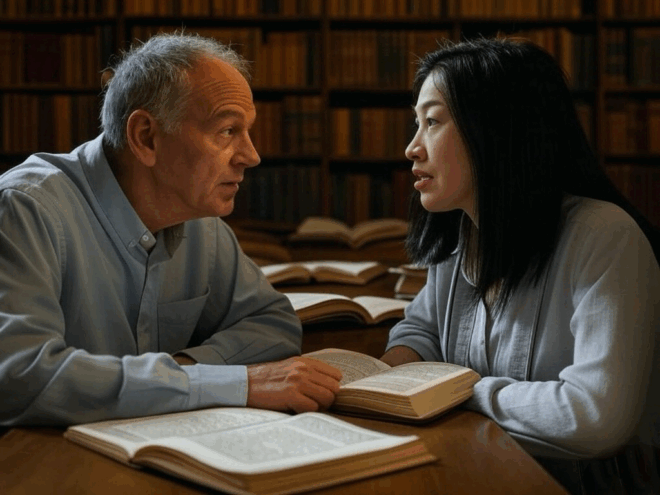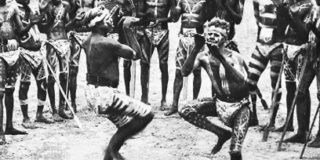
Introduction
The ongoing debate about how history should be taught in schools serves as a reflection of larger societal tensions surrounding memory, identity, and justice. Often, dominant cultural groups argue that focusing on the darker aspects of history – such as colonialism, slavery, or genocide – can foster division among students and undermine national unity. Conversely, descendants of those who suffered under these systems assert that a comprehensive historical narrative is essential for truth, validation, and addressing ongoing inequalities. This post will delve into the impact of this debate on education, examining curriculum design, classroom dynamics, teacher training, and student outcomes. It will argue that while emphasising negative historical events may challenge social cohesion, suppressing these truths risks perpetuating injustice and marginalising descendants of colonialism. An inclusive, truth-centered approach to history education is essential to honour the rights of these descendants while fostering critical thinking and a shared sense of humanity.
The Dominant Culture’s Perspective – Education as a Tool for Unity
From the standpoint of dominant cultural groups, education is often viewed as a mechanism for fostering social cohesion and a sense of national identity. Proponents of this perspective argue that history curricula should prioritise narratives that unify students around shared values and achievements. In countries with colonial pasts, such as the United States, Australia, or Canada, this frequently translates to an emphasis on stories of nation-building, exploration, or democratic progress.
For instance, in the United States, the narrative surrounding the Founding Fathers as champions of liberty often overshadows their roles in slavery and Indigenous dispossession. Critics of a more sanitised history argue that focusing on these darker aspects risks alienating students, particularly those from dominant groups, from a sense of national pride.
Moreover, there is a prevalent concern that teaching negative histories may create discomfort or guilt among students who identify with the dominant culture. In Australia, debates over the inclusion of Indigenous perspectives in history curricula have sparked backlash from parents and policymakers who fear that such content fosters division or assigns blame to contemporary generations. This has led to calls for “balanced” curricula that downplay colonial violence in favor of more celebratory narratives.
Additionally, dominant groups often contend that emphasising historical wrongs can politicise education, transforming classrooms into battlegrounds for ideological disputes. Recent efforts to restrict the teaching of critical race theory and other frameworks that highlight systemic racism illustrate this tension. Some states in the U.S. have passed laws aimed at limiting discussions of “divisive” historical topics, reflecting a belief that education should prioritise social stability over contentious truths.
This perspective significantly shapes educational practices, often resulting in curricula that omit or sanitise difficult histories, textbooks that present one-sided narratives, and teachers who avoid controversial topics to prevent conflict. However, this approach frequently marginalises students from colonised or oppressed backgrounds, whose histories and identities are sidelined in the name of unity.
The Descendants’ Perspective – Education as a Space for Truth and Validation
For descendants of colonialism, slavery, and other historical oppressions, education represents a critical arena for reclaiming their stories and asserting their right to historical remembrance. This perspective carries profound implications for how history should be taught and learned.
Firstly, descendants argue that an honest historical narrative is essential for validating their identities and experiences. The legacies of colonialism – ranging from the transatlantic slave trade in Africa to residential schools in Canada and land dispossession in Australia – have profoundly shaped the cultural, economic, and social realities of marginalised communities. Excluding these truths from curricula constitutes a form of epistemic violence, erasing the pain and resilience of their ancestors. For example, Indigenous students in Canada have reported feelings of alienation in classrooms where the history of residential schools is glossed over or omitted entirely.
Secondly, a “warts and all” curriculum is viewed as a crucial tool for addressing ongoing inequalities. Education significantly shapes students’ understanding of the world, and a curriculum that ignores the structural legacies of colonialism fails to equip them to confront issues such as systemic racism or economic disparities. In South Africa, advocates argue that teaching the full history of racial oppression is essential for fostering a generation committed to justice.
Thirdly, descendants assert a moral and cultural right to have their stories included in education. History curricula are not neutral; they reflect power dynamics that prioritise the narratives of the dominant group. In the Caribbean, for instance, colonial figures like Christopher Columbus often dominate history lessons, while the experiences of enslaved Africans or indentured labourers are marginalised. By demanding inclusive curricula, descendants seek to reclaim agency over their heritage and challenge the hegemony of dominant narratives.
Finally, there is an emotional dimension to this demand. For many students from marginalised backgrounds, learning about their ancestors’ suffering and resistance can be a source of pride and empowerment. A curriculum that acknowledges these histories fosters a sense of belonging and self-worth, countering the alienation that can result from sanitised narratives.
The Right to Historical Remembrance in Education – Ethical and Legal Frameworks
The right of descendants of colonialism to have their stories told in education is grounded in ethical and legal principles, which carry direct implications for curriculum development and teaching practices.
Ethically, the principle of justice demands that education systems acknowledge historical wrongs. John Rawls’ theory of justice as fairness suggests that societies must rectify inequalities stemming from historical injustices, and education serves as a key mechanism for this. Suppressing the stories of colonised peoples in curricula violates this principle by perpetuating narrative injustice, where the powerful control what is taught and remembered. The concept of restorative justice, applied in educational contexts, emphasises truth-telling as a foundation for reconciliation and equity.
Legally, international frameworks support the inclusion of marginalised histories in education. The United Nations Declaration on the Rights of Indigenous Peoples (UNDRIP) affirms Indigenous peoples’ rights to their cultural heritage, including their historical narratives, and calls for education systems to reflect these perspectives (Articles 13 and 15). The African Charter on Human and Peoples’ Rights similarly recognises the collective rights of peoples to their history and culture, providing a basis for descendants to demand inclusive curricula. These frameworks challenge the notion that emphasising negative histories is divisive, framing it instead as an obligation to uphold human dignity.
In practice, these principles necessitate that education systems integrate marginalised perspectives into curricula, train teachers to navigate difficult histories, and create inclusive classroom environments. However, implementing these changes is complex, as it involves balancing competing interests and addressing resistance from dominant groups.
Impacts on Educational Systems and Stakeholders
The debate over historical narratives has far-reaching impacts on educational systems, affecting curricula, pedagogy, teachers, students, and broader societal outcomes.
Curriculum Design
Curricula lie at the heart of this debate. Dominant narratives often shape textbooks and learning materials, marginalising the experiences of colonised peoples. For example, in the U.S., many history textbooks have historically downplayed the brutality of slavery or framed it as a secondary issue compared to the American Revolution. Efforts to include more inclusive narratives, such as the 1619 Project’s educational resources, have faced resistance from those who argue they promote division. Yet, inclusive curricula can enrich learning by providing a fuller picture of history. New Zealand’s integration of M?ori perspectives into its history curriculum, mandated since 2022, demonstrates how education can honor marginalised voices while fostering critical thinking.
Pedagogy and Classroom Dynamics
The manner in which history is taught shapes classroom dynamics. Teachers who emphasise negative aspects of history may encounter pushback from students or parents, particularly in polarised contexts. In Australia, the “History Wars” have made teachers cautious about discussing Indigenous dispossession, fearing accusations of bias. Conversely, avoiding these topics can alienate students from marginalised backgrounds, who may feel their histories are irrelevant. Pedagogical approaches that encourage dialogue, such as inquiry-based learning or storytelling, can help navigate this tension, allowing students to engage with difficult histories constructively.
Teacher Training
Teachers are critical to implementing inclusive history education, yet many lack the training to address controversial topics. Professional development programs must equip educators with the skills to teach sensitive histories, facilitate discussions, and manage diverse perspectives. In Canada, teacher training initiatives following the Truth and Reconciliation Commission’s Calls to Action have focused on integrating Indigenous histories, but gaps remain in preparing teachers for classroom realities.
Student Outcomes
The historical narratives students encounter shape their worldviews, identities, and civic engagement. Inclusive curricula can empower students from marginalised backgrounds, fostering a sense of agency and belonging. For instance, African American students exposed to curricula that highlight Black contributions and resistance report higher self-esteem and academic engagement. Conversely, sanitised narratives can reinforce stereotypes and perpetuate ignorance about systemic inequalities. For all students, learning a complete history cultivates critical thinking and empathy – essential skills for thriving in democratic societies.
Societal Implications
Education shapes societal attitudes, and the way history is taught influences how communities address the legacies of colonialism. Inclusive education can promote reconciliation and social justice, as seen in South Africa’s post-apartheid curriculum reforms, which aim to foster a shared understanding of the past. However, resistance to inclusive curricula can deepen divisions, as illustrated by ongoing debates in the U.S. surrounding critical race theory. The stakes are high: education can either perpetuate historical injustices or serve as a catalyst for change.
Case Studies – Educational Responses to Historical Narratives
Australia: Indigenous Perspectives in the Curriculum
In Australia, the inclusion of Indigenous histories in the national curriculum has been a contentious issue. Following the 2008 National Apology to the Stolen Generations, efforts to integrate Aboriginal and Torres Strait Islander perspectives gained momentum. However, resistance from those who view these changes as divisive has led to uneven implementation. Some schools now teach about the frontier wars and stolen generations, while others prioritise colonial achievements, reflecting local attitudes. The impact is evident: Indigenous students in schools with inclusive curricula report greater engagement, while non-Indigenous students gain a deeper understanding of historical complexities. Yet, teacher preparedness and parental resistance remain challenges.
United States: The 1619 Project and Curriculum Bans
The 1619 Project, launched by The New York Times, sought to reframe U.S. history by centring the experiences of enslaved Africans. Its educational resources have been adopted in some schools, sparking debate about how slavery should be taught. Critics argue that the project promotes a divisive narrative, leading to laws in states like Florida and Texas that restrict discussions of systemic racism. These bans have chilled classroom discussions, with teachers fearing repercussions for addressing controversial topics. Meanwhile, students in schools utilising inclusive materials report greater awareness of racial justice issues, highlighting the potential of education to shape attitudes. The U.S. case illustrates the tension between truth and unity, with education serving as a battleground.
Toward an Inclusive History Education
Navigating the debate over historical narratives in education requires a deliberate, inclusive approach. Several strategies can help balance the goals of truth, justice, and social cohesion.
First, curricula must integrate marginalised perspectives as core components, not mere add-ons. This entails revising textbooks, incorporating primary sources from colonised peoples, and framing history as a multifaceted story. New Zealand’s model, which mandates M?ori history, offers a promising blueprint.
Second, teacher training programs should prioritise cultural competency and strategies for teaching difficult histories. Workshops, mentorship, and resources can empower educators to facilitate nuanced discussions.
Third, pedagogy should emphasise critical inquiry and dialogue. Methods such as project-based learning or Socratic seminars allow students to explore historical complexities, fostering empathy and understanding across perspectives.
Fourth, schools must engage communities to build support for inclusive education. Parent workshops, public forums, and partnerships with cultural organisations can help address resistance and promote shared goals.
Finally, education systems should align with international human rights frameworks, such as UNDRIP, to ensure that the rights of descendants are upheld. This includes involving marginalised communities in curriculum development to ensure authenticity and relevance.
Conclusion
The debate over emphasising negative aspects of history in education reflects competing visions of what schools should achieve: unity or truth. For descendants of colonialism, an inclusive, “warts and all” curriculum is a matter of justice, validating their identities and addressing historical legacies. While dominant groups may fear division, suppressing these truths marginalises students and perpetuates injustice. By embracing inclusive curricula, training teachers, and fostering dialogue, education systems can honour the rights of descendants while equipping all students to navigate a complex world. History education is not just about the past; it is a foundation for a just and equitable future.
References
• Rawls, J. (1971). A Theory of Justice. Harvard University Press.
• United Nations. (2007). Declaration on the Rights of Indigenous Peoples.
• African Charter on Human and Peoples’ Rights. (1981).
• The 1619 Project. (2019). The New York Times Magazine.
• Truth and Reconciliation Commission of Canada. (2015). Calls to Action.
• Australian Curriculum, Assessment and Reporting Authority. (2023). Cross-Curriculum Priorities.
This comprehensive analysis serves as a reminder of the vital role education plays in shaping societal narratives and fostering a more inclusive and just world.


